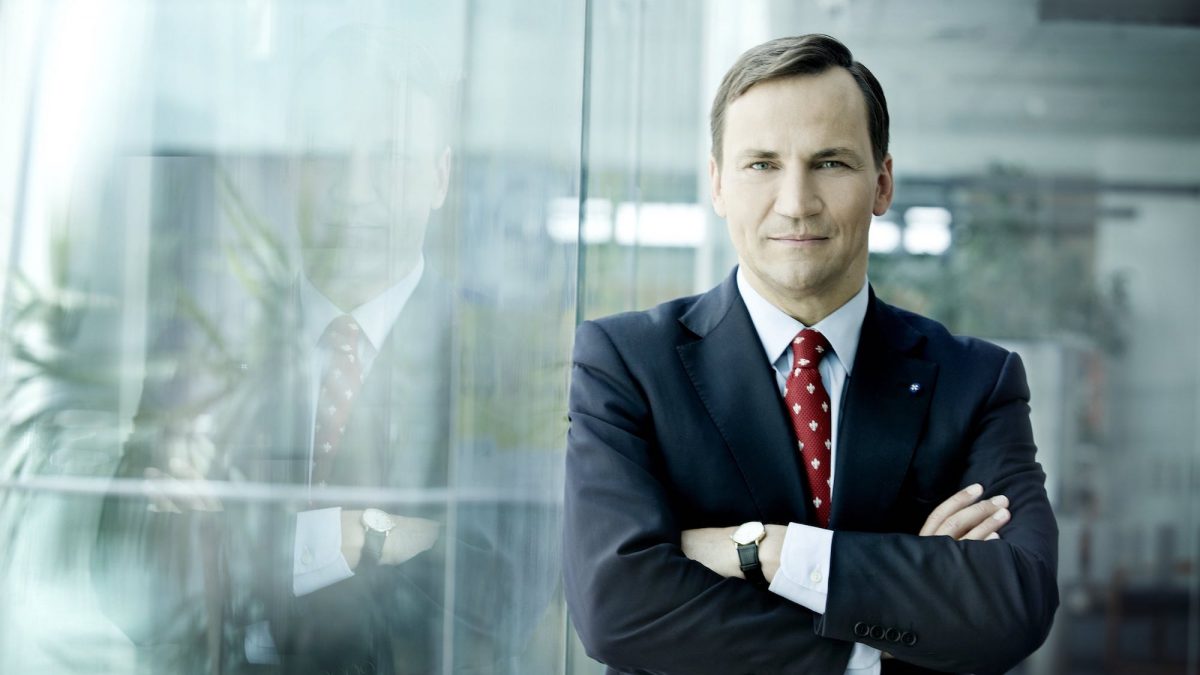Radosław Sikorski: “Viktor, this is not what we were fighting for”
An Oxford alumnus, war correspondent of The Sunday Telegraph from Afghanistan, former minister of national defence and foreign affairs as well as a one-year speakership of the Polish sejm before a rather disgraceful exit from politics due to a major bugging scandal and the 2015 election defeat of his party, the Civic Platform (PO). Yet, Radosław Sikorski is still one of the busiest Polish public figures in the West. What is his take on Central Europe, how does he see his years as foreign minister and what mistakes did they make in office? Has Poland really given a “blowjob” to the United States – just as he predicted? Válasz met him in Warsaw to find out the answers but it also turned out that he does not rule out the idea of a political comeback and he calls the Hungarian prime minister on his first name.
- After 8 years, voters got tired of him and his party.
- The currently governing Law and Justice (PiS) party in Poland has done things more radically and faster than their Hungarian colleagues.
- The anti-European Poland exists but it is one-third of Poland.
- The level of Viktor Orbán’s cynicism is higher than required in a civilised country like Hungary.
- A door should be kept open to Russia if it shows to return to a path of convergence with the West.
– Your new book entitled Poland Can Be Better has been published just recently. Looks like Poland is bad today.
– She is missing opportunities, particularly in foreign policy and European Union levels.
– In what spheres?
– Poland is a member of the G6 – with Britain’s leave it will be G5 – and the largest country of the new EU member states. It could be together with Berlin and Paris, an indispensable member of the most important group of countries. Instead it is being threatened with sanctions, counting on our Hungarian friends to save us from the consequences of the government’s illegal actions.
– You are suggesting Poland can be better but in 2015 voters said it was not good enough after your party’s 8-year tenure.
– But it was not a decision against the EU as it was not even an issue in the electoral campaign.
– Howcome it became an issue?
– Because the government has started breaking our own constitution. That is all the EU wants from us: to respect our own constitution and we have no interest in breaking it. Remember that what our government has done here was more radical and was done faster than what was done in Hungary because they had only a slight majority in parliament by gaining 38 per cent of popular votes which normally does not give you a working majority in parliament, let alone a constitutional majority.
– Still, they won the election.
– Yes they won fairly and they had a perfect mandate for ruling the country but not for a revolution and not for changing the constitution either officially or by breaking it – for example by a political takeover of the constitutional tribunal.
– The majority of the Poles still seems to buy it.
– No they do not. We had regional elections in October; out of the 107 major Polish cities, the opposition got 101 and the government got 6. The biggest city the government will rule is Zamość with some 64.000 people. Everything else is now run by the opposition so the government’s claim that it was representing the whole country has shown up false as they got one-third of the votes. This kind of anti-European, somewhat authoritarian, traditionalist Poland exists but it is one-third of Poland.
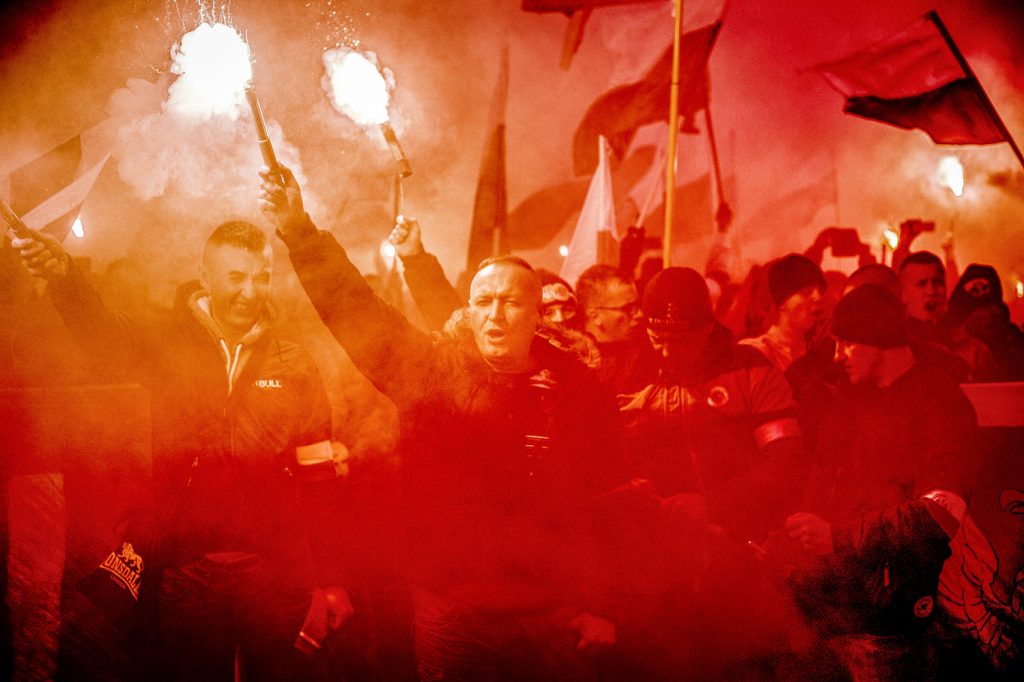
– Still, are you willing to admit that your government has also made some mistakes?
– Of course. First of all, voters got tired of us because we were in charge for 8 years. Secondly, we missed the moment when we should have gone from the financial crisis management mode and we could have been more generous in social provisions. And thirdly, there were unfortunate mishaps like the illegal tapes and president Komorowski’s election defeat in 2015 which created a dynamic of its own.
– Critics also mention that you were distancing yourselves from ordinary people.
– After 8 years, most governments could have accused for that. Foreign ministers in particular as they see you hobnobbing around; if you are in Brussels or Washington, surely you cannot understand what people in your hometown feel.
– Let us go back to those years when served as foreign minister. In 2018, it is quite odd to observe the melting dynamics Poland and Russia had then.
– We did our reset before the Americans did because Russia is our neighbour and while there are fundamental differences of interests – which make a general rapprochement unlikely –, she is important for us. Russia is our second largest trading partner and the only potential existential threat so it is a relationship that has to be managed. You do diplomacy not only with friends but also with competitors and it is always good to try to have a new opening when you form a new government – to test the waters. And I think it worked: there was an embargo then on Polish food stuffs. My philosophy was similar to the prisoner’s dilemma: you make one positive move then wait for the reaction of the other side. Our positive move was to lift Poland’s veto on Russia joining OECD. It was costless because it is in our interest to get Russia integrated into Western institutions where members abide the rules.
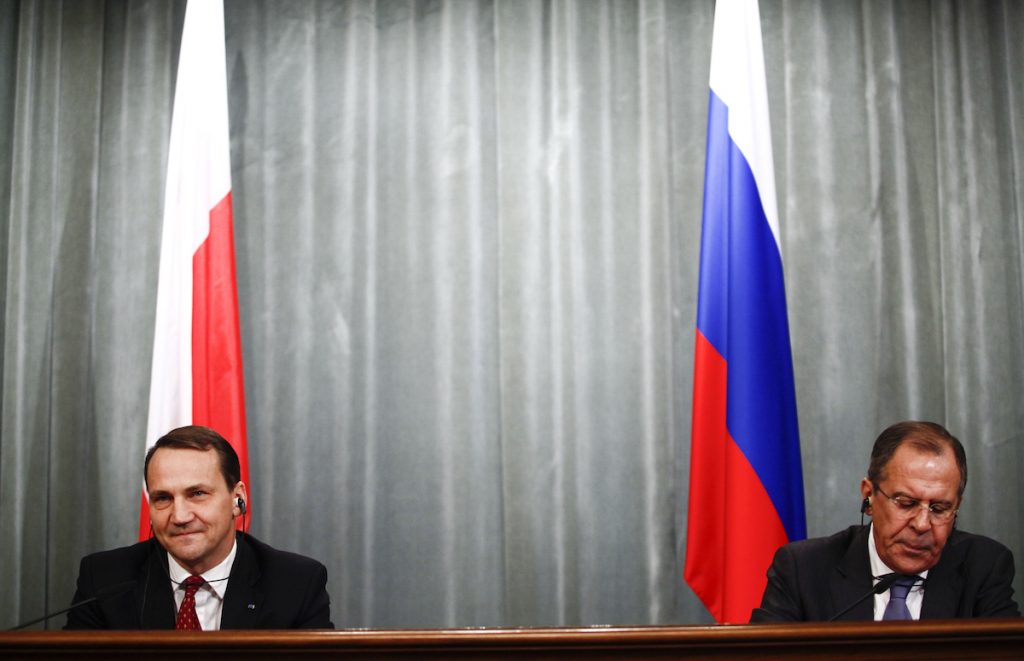
The Russians responded by lifting the embargo, the actual ruler of Russia – then prime minister Vladimir Putin – visited Westerplatte and Katyń for the first time and a reconciliation process has started between the two churches. With my Russian colleague, Sergey Lavrov, we persuaded EU interior ministers to change the rules so that we could establish a local border traffic agreement therefore 3 million people in Russia and in Poland could travel in the Kaliningrad border region without visas which was a huge success. All in all, a very elementary fairness was being established and while we were doing all that, the West saw that we could be rational with Russia which established Poland’s credentials as a Russia expert so when we proposed Eastern Partnership we were trusted.
– Was Crimea a turning point?
– Yes.
– So there is no place left for reconciliation?
– Crimea broke an important taboo and Russia is conducting a hybrid war against Ukraine in which 10.000 people have died. It is murdering people inside EU countries – using polonium or novichok – and still trying to destabilise countries by strengthening radicals in Poland, Hungary, Italy, Britain or France. These are unfriendly actions so first Russia should stop it.
– Then we can go back to business as usual?
– I have been criticised in Poland for being an advocate of keeping a door open to Russia if it shows to return to a path of convergence with the West but it does not mean that we meet halfway; it has to mean that Russia abides by generally accepted rules like “do not invade countries and respect international borders”. If you want to protect Russians abroad, use your consular services or cultural outreach: in Europe, we have ways of doing that. Also do not carry out military exercises during which you exercise using nuclear weapons and if you do all that, do not be surprised that people are afraid – which I think the Russians like.
– Having seen Crimea and the war in Donbass, would you admit that your “friendly” approach towards Russia was a mistake?
– No because you always have to try it. I also made an opening to Lukashenka without having high hopes it would work – and it did not but helped Lukashenka with his maneuvering with Moscow. Russia is the last European empire and it is harder for them because the colonies are not overseas. The way I see the relationship between Russia and Ukraine is Britain’s relationship with Ireland and it usually takes a couple of generations for the metropolis to recognise the otherness of the former colony. The question is how many people have to die before Moscow says to Kyiv that “alright, you are really separate”. Poland however, unlike Hungary, feels that changing borders in Europe by force is a terrible idea. Hungary is in a different position because some of your politicians would not mind changing borders in Europe.
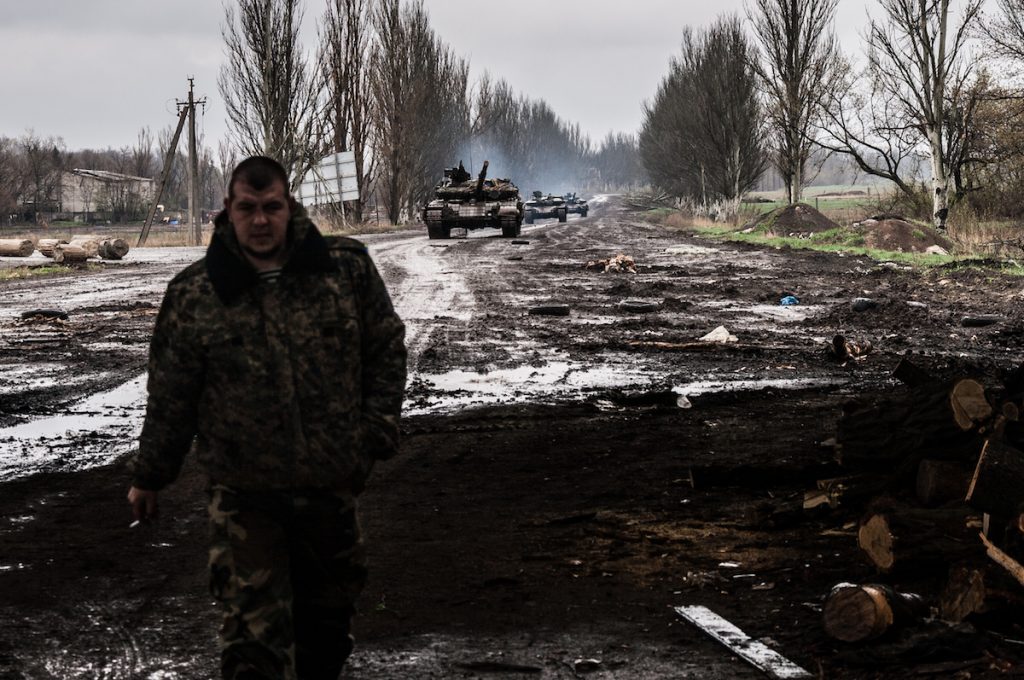
– What do you mean exactly?
– An important part of the Hungarian establishment is still traumatised by Trianon. We all noticed Viktor’s…
– … you call him Viktor?
– He went to my college at Oxford on a Soros scholarship. I thought he was being humorous but I was also somewhat alarmed some 6 years ago when he said that “Hungary is the only country in Europe which borders itself”. What possibly could he mean? We had a cordial relationship though, for many years.
– What has changed?
– The policies that he pursues inside Hungary. For me, the last straw was the vilification of George Soros, using methods that are reminiscent of the 20th century and that we should never repeat. Also his cynicism goes beyond what we should do in a civilised country like Hungary. When that wave of refugees hit your borders in 2015, I am told that the government sponsored hundreds of billboards around Hungary with the slogan “refugees please respect our Hungarian culture” – written in Hungarian. It was a clear usage of an emotive issue for doing party politics and that is not my way of doing it.
–If you were foreign minister again and had the chance to meet him, what would you say?
– He is a more agile politician than our Kaczyński. He speaks English, he knows when to draw back and – unlike PiS – he had the wisdom to stay in the EPP but I would tell him:
“Look, the kind of crony capitalism that you have created in Hungary – where people make money by connections to the government – is not what we were fighting for in the late 1980s and early 1990s when we were in a need together.”
– Could you really imagine that on the order of the Hungarian government our – few, still operative – tanks would roll out from the army bases to head towards the borders with Transcarpathia and such fears of some Ukrainian politicians are rightful?
– If I were Hungarian, some pronouncements and actions of some Hungarian officials would make me suspicious.
– Like exercising a veto on Ukraine’s EU and NATO integration because of the current Ukrainian education law which, according to the government in Budapest, harms the Hungarian minority in Transcarpathia?
– Ukraine and Hungary are not the only two countries in Europe that have a dispute over the treatment of national minorities – we have a dispute with Lithuania, for example. The solution is to give all the rights to the minorities they want – so that the borders become meaningless – rather than the 20th century way because we have seen that movie already and we know where it leads and how it ends. While recognising that there are these disputes, we now have a legal framework in which they can be settled. We have the Council of Europe’s Convention for the Protection of National Minorities and you do not have to reinvent the wheel but respect the convention because both countries are members of the Council.
– Supposing the Polish opposition would come to power next autumn, should they maintain their sometimes harsh criticism on Hungary?
– Polish authoritarians learn from the Hungarian playbook: first taking over the constitutional tribunal then the public media then state companies. I am afraid
Poland and Hungary both have done something terrible: they resurrected the old idea of Eastern Europe in the minds of Western Europeans. For 25 years, we have been working incredibly hard to become normal European countries and now again we are seen as somewhat exotic, somewhat Eastern with a different political culture.
And it is not good because at the end you show solidarity – both financially and in terms of security – for people who you think are part of your civilisation. Hungarian and Polish nationalists have created the impression that somehow we are incompatible with EU values and it is a terrible disservice that has been done to our image and it will take years to repair it.
– People still seem to buy these ideas.
– But the ideas are not spread by themselves. In Poland, hundreds of millions of złotys have been spent on popularising nationalist ideas. We have a really nasty, formally public television, we have silence from the Catholic church – which I thought was Catholic but it turned out to be nationalist – and we have fringe nationalist newspapers which are pumped up by advertising revenues from state companies. I am sure a mechanism you are familiar with.
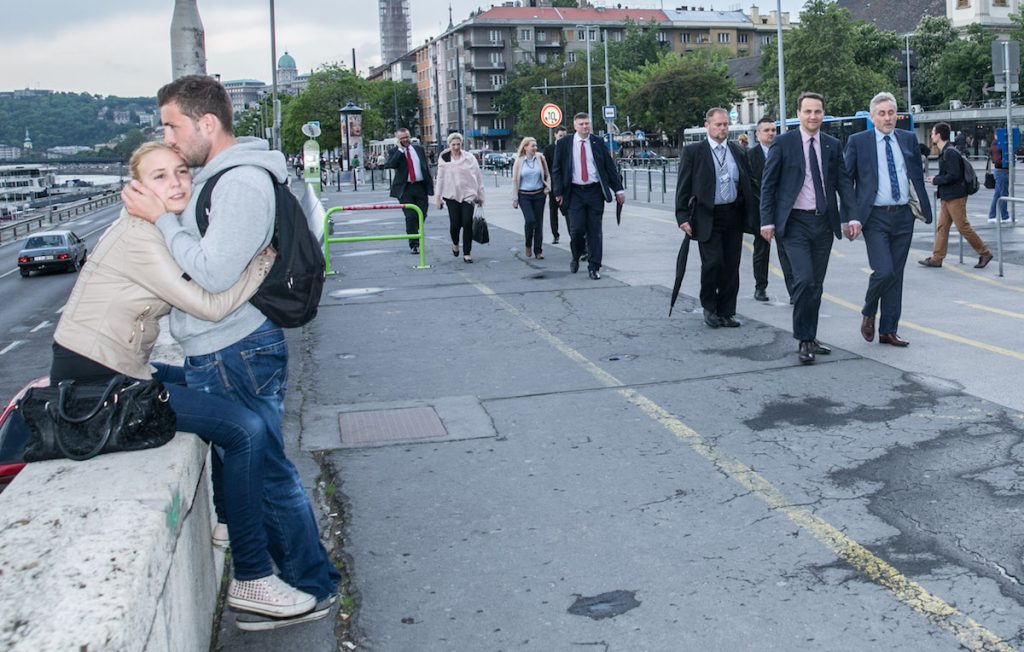
– I am. As to the foreign policy of the current Polish government, would you say that your infamous bugged comment on the Polish–US relationship has born fruit?
– I hope you admit that my prophecy has come about rather precisely. I predicted that if Law and Justice came into power, it would wreck our relationship with Russia and Germany and we would be very happy because we have done a blowjob to the Americans.
– You said this when there were no US soldiers on Polish soil. Now there are.
– The situation is a bit better now but I still think it is a mistake to think of our alliance with the United States as a licence to be irresponsible in our European policy and in our relationship with our more powerful neighbours because we can count on American help in some circumstances but not in others. For example, if the US–China trade war becomes something more serious, where do you think the US will pay more attention and use its resources: there or here? I know the answer.
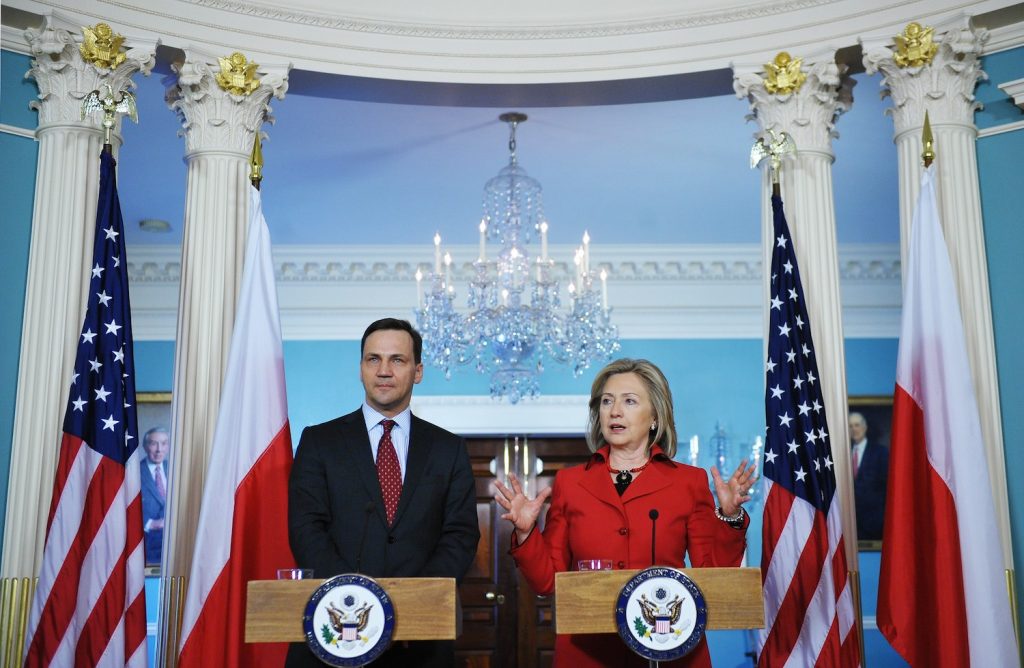
– In defence matters however, the blowjob was effective, wasn’t it?
– We will see. The decisions on the permanent base have not yet been taken. The Polish–American alliance should be strong but not naive because outside the NATO framework it is a somewhat exotic alliance; Poland is not as important for the United States as some of our enthusiasts think. It is a strategic relationship – for Poland and not for the United States.
– So you suggest that if push came to shove…
– … we have no idea what president Trump would do. He does not know himself but I know that at the famous Helsinki press conference he said he trusted more president Putin than the FBI which makes me nervous.
– Which leads me to the conclusion that you have doubts about NATO’s Article 5.
– Poland has historic reasons to be doubtful about its allies and we should internalise the lesson that allies should be tested and alliances cannot mean a one-sided act of devotion by Poland because it is not always reciprocated.
– In early November, the Polish daily Gazeta Wyborcza wrote that you were to return to politics. What do you have in mind?
– I am being tempted, sure.
– By whom?
– By my party. And that is because the next European election is going to be particularly important. First at European level where the contingent of populists and europhobes would like gain even more seats in the European Parliament and use even more European money for the cause of the destruction of the European Union the survival of which is a vital national interest for Poland. Also internally, it is the last election before the national election in a year’s time and if the opposition can win the European election on an issue that we are comfortable and the government is not credible, that creates a political dynamic that could be crucial in the national election.
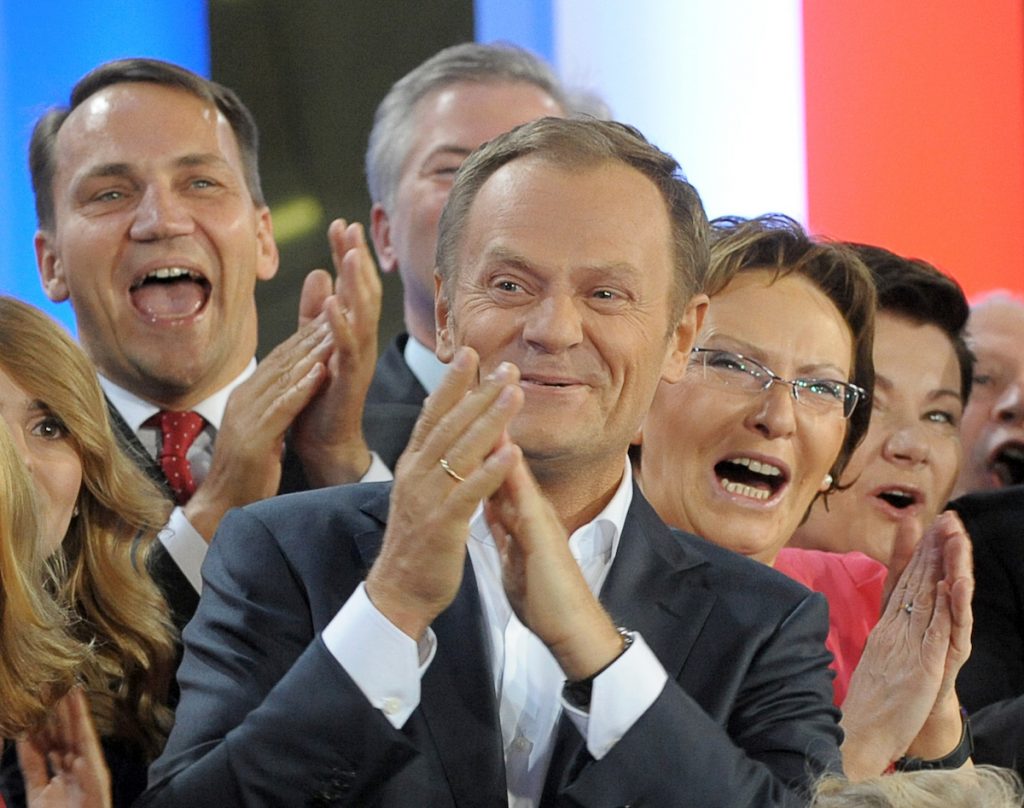
– Were you given any deadline to decide?
– These are details which I discuss with my party leaders.
– Are you willing to come back?
– I am thinking about it but I have not made up my mind yet.
– If you decided to return, would it mean a top place on your party’s European election list?
– These are details the general public is not particularly interested in.
– But we are.
– It is very important to prevent the ruling party from taking Poland out of the EU whether by design or through nationalist ignorance.
– If you had to run a campaign before the European election, what would you put on the billboards?
– Poland used to be a leader in Europe and Europe accepted important projects that we brought up: the Eastern Partnership, the biggest cohesion fund in EU’s history or the election of Donald Tusk which was a 28:0 vote for us; 2,5 years later, these guys got a 27:1 vote against their position which was to try to unseat Tusk. That is not a success, that is not an influential Poland, that is a Poland which is losing important votes in the EU. That is against the Polish national interests so we need to do things that will bring Poland back to its former position.
– Having read your wife’s article in The Atlantic – in which she mentions that the polarization in Poland is so huge that your family lost contact even with the PiS-friendly godmother of your children – a philosophical issue for last: how on earth did we end up here 30 years after the fall of Communism?
– There are two answers to globalisation. One is to create a patriotism of rules and the other one is to go back to an older identity. People choose differently. It also has to do something which she identifies that you either subscribe to meritocracy or subscribe to a more ethnically-based definition of “who is entitled to rule”. I think it can be overcome but we need leaders like Macron who mobilise people on positive ideas rather than try to benefit from what is worst in us.
– Macron’s poll numbers are breaking negative records.
– But he won the French presidential election in 2017 and restored our faith that success is possible and we can save the EU by mobilising optimism.
Cover portrait: Krzysztof Dubiel

